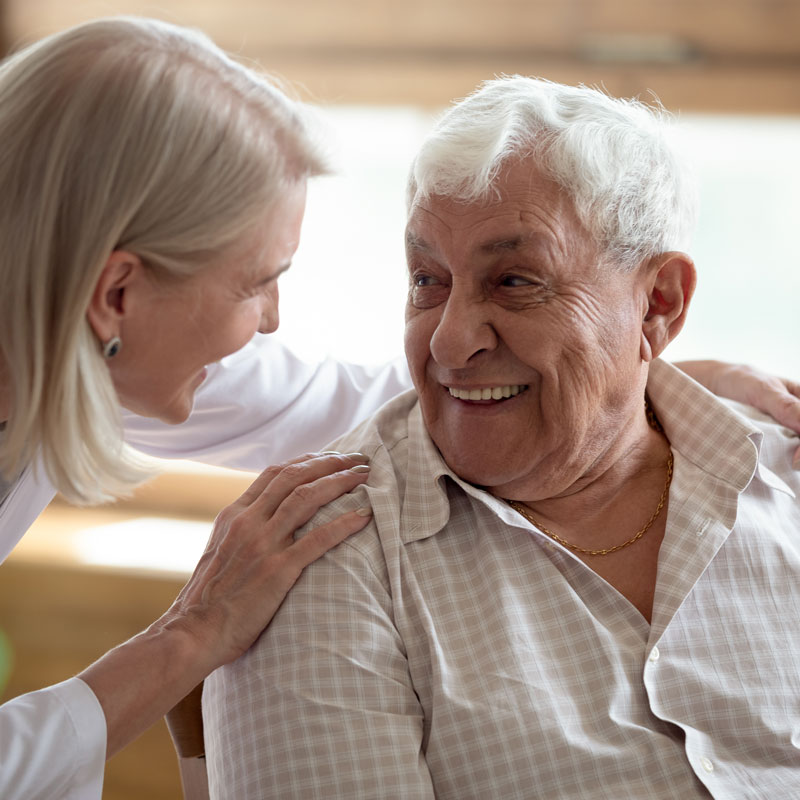Current Research Projects
The CCBH under the leadership of Dr. Galvin is actively engaged in clinical trials and observational studies related to Lewy Body Dementia, Alzheimer’s Disease, and other neurodegenerative conditions. Research and clinical care activities are conducted on site at our Boca Raton facility, which is equipped for collection and processing of blood and CSF for LBD biomarker and DNA analysis, cognitive testing, physical functional evaluation, and infusion with imaging studies referred to a University of Miami affiliate group. For a list of current CCBH projects click here (link to current project tab).
LBD Support Groups
DLBA Support Group
The Mindful Caregiver Psycho-educational Support Group
This support group meets twice a month on the 2nd and 4th Thursday of the month at 12pm for one hour. This group is organized and led by Iris Cohen, LCSW a social worker at the Comprehensive Center for Brain Health.
DLBA Support Group
The DLBA support group is offered on the first Thursday of the month at 12pm to care partners of patients that are diagnosed with Lewy Body Dementia. The meeting usually lasts 90-120 minutes in total. The group is facilitated by Iris Cohen, LCSW a social worker at the Comprehensive Center for Brain Health.
The group currently meets via Zoom due to Covid-19 restrictions. As a result, the monthly group meetings have grown from 6-10 participants in person per meeting to 15-20 participants per meeting via an online platform. This allows for people who previously could not attend the meeting due to distance and time restrictions to participate.
This is a traditional support group in which participants are encouraged to share from their own experiences talking about challenges and difficulties, emotions, and feelings. The group provides support to one another through advice and normalization and validation of experiences in a safe and supportive environment.
The Mindful Caregiver Psycho-educational Support Group
This is a psycho-educational group offered to members of the larger DLBA support group.
This support group meets twice a month on the 2nd and 4th Thursday of the month at 12pm for one hour. This group is organized and led by Iris Cohen, LCSW a social worker at the Comprehensive Center for Brain Health.
This group meets via Zoom due to covid 19 restrictions. Participants are capped at 10 per meeting to ensure a sense of safe and intimate group environment where group members share freely.
This support group introduces principals of Mindfulness Based Interventions to aide in the difficult task of caregiving. Each session is designed to help caregivers learn tools and techniques that can be utilized to overcome the challenges they encounter during everyday life.
Education
Lewy Body Dementia Association
National Institute on Aging
Lewy Body Dementia Resources
NIA Alzheimer’s and related Dementias Education and Referral (ADEAR) Center
800-438-4380 (toll-free; 8:30am to 5:00pm Eastern Time, Monday-Friday)
The National Institute on Aging’s ADEAR Center provides up-to-date research-based information concerning Alzheimer’s disease and related dementias (ADRD) to health professionals, people with ADRD and their families, and the general public. Free publications about ADRD symptoms, diagnosis, treatment, caregiving, and information about current clinical trials are provided and staff is available to answer specific questions and refer to local supportive services and Research Centers specialized in research and diagnosis.
Lewy Body Dementia Association
404-935-6444
800-539-9767 (toll-free LBD Caregiver Link)
Lewy Body Dementia Resource Center
833-LBDLINE (toll free)
Family Caregiver Alliance
National Center on Caregiving
(415) 434-3388 | (800) 445-8106
Website: www.caregiver.org
Email: info@caregiver.org
FCA CareNav: https://fca.cacrc.org/login
Support our Lewy Body Dementia Research Center of Excellence
LBD is the second most common cause of dementia yet lags significantly in Federal research funding compared with Alzheimer’s disease, Vascular dementia, and other causes. You can help us reach our goals of developing better diagnostics and better treatments. Click here to learn how to help.

